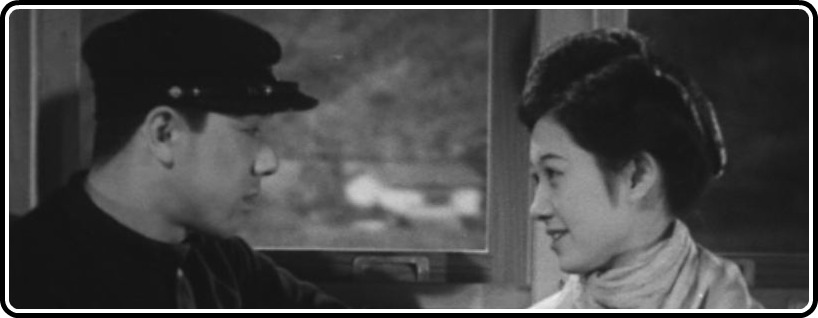
The approach of Mothers Day this past weekend (here in the USA) put me in the mood to revisit the films of Mikio Naruse. More than any other director represented in the Criterion Collection, even surpassing his slightly more celebrated contemporary Kenji Mizoguchi, Naruse’s films have provided evocative, soul-stirring insights into the lives of ordinary working class women that left a profound impression upon me and my own regard for the important women in my life. Though his films have been hard to come by in the States for quite a few years, the 2011 release of Eclipse Series 26: Silent Naruse, and a number of other titles currently available only on Criterion’s Hulu Plus channel (such as Yearning, Flowing, Wife and Mother) have made his impressive work more available over the past year or so. As the names of those films imply, Naruse had a deep and abiding motivation to understand the ordeals that women had to endure in his society. He communicated their concerns to a culture that was maddeningly indifferent to their plight and too often complicit in perpetuating sexist practices that led to needless suffering and gross injustice. Yeah, those are some heavy-sounding themes, I know, and maybe that’s not the most effective pitch to persuade readers to explore his films, but what I find so remarkable is how gracefully Naruse tells these stories, directing his actors to convey their characters’ experience with impressive subtlety, capturing such a wealth of truth and emotions with small tactful gestures that amply reward a close attention to their cues.
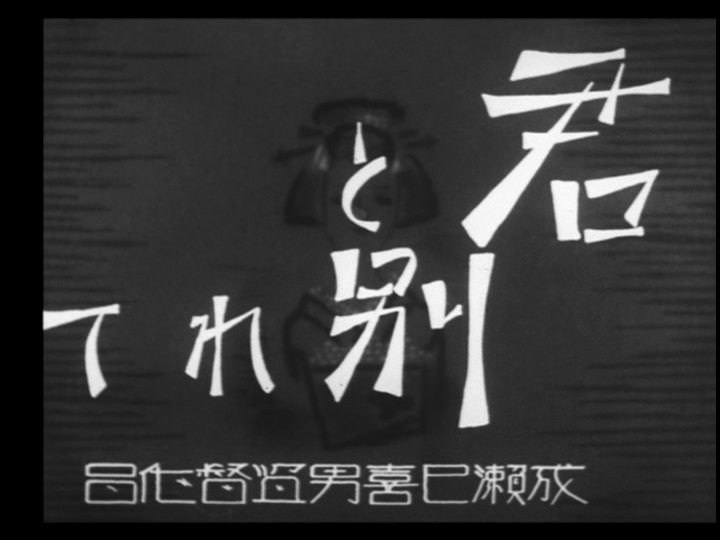
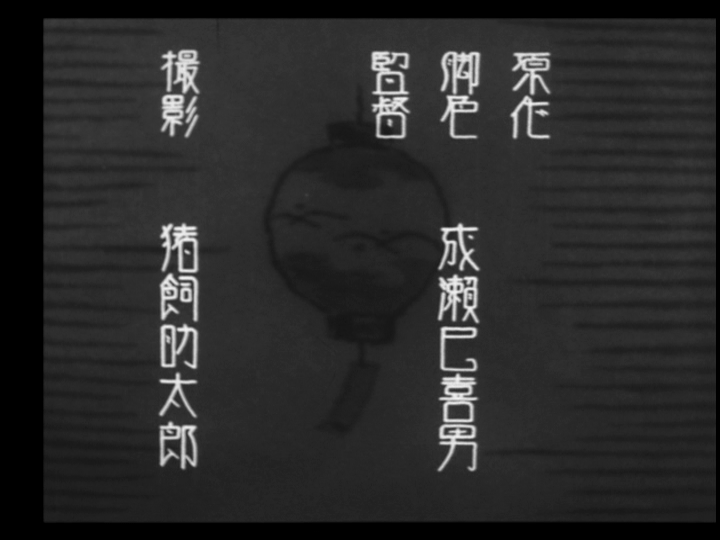
The film I chose to view this weekend was Apart From You, the fourth of five from that Eclipse Box I’ve reviewed here. (The others are Flunky, Work Hard, Street Without End and Every Night Dreams.) Though it clocks in at a mere sixty minutes, one of the shorter offerings in the set, Apart From You marks a crucial stage in Naruse’s development as the first of what turned out to be many films that looks incisively at the lives of women employed in Japan’s then-burgeoning geisha houses, one of the very few options that single women could choose from if their life circumstances required them to be financially self-reliant. Though the geisha trade bore all the hallmarks of traditional beauty, discipline and feminine allure that still fascinate to this day, it was far from a glamorous life. Naruse’s unflinching portrayal of the price these women paid by doing that work created a rich and important legacy of Japanese cinema from that era. While squarely placing his stories in a particular social context, his films still express feelings and situations that women and men from diverse backgrounds can immediately recognize and relate to.
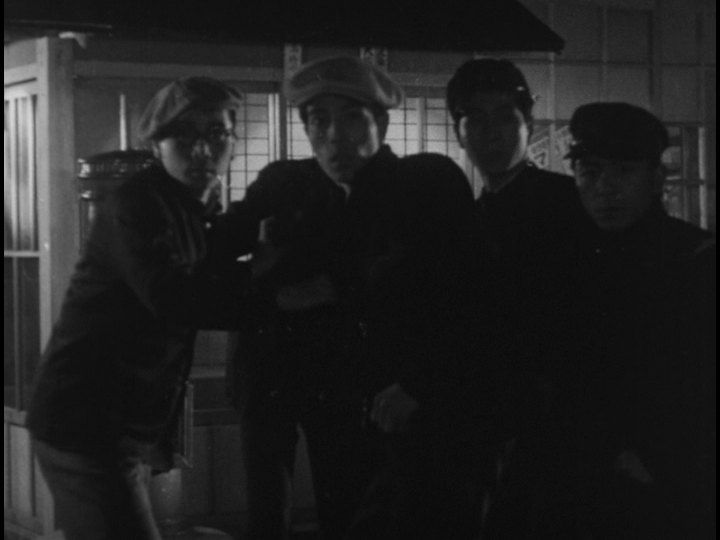
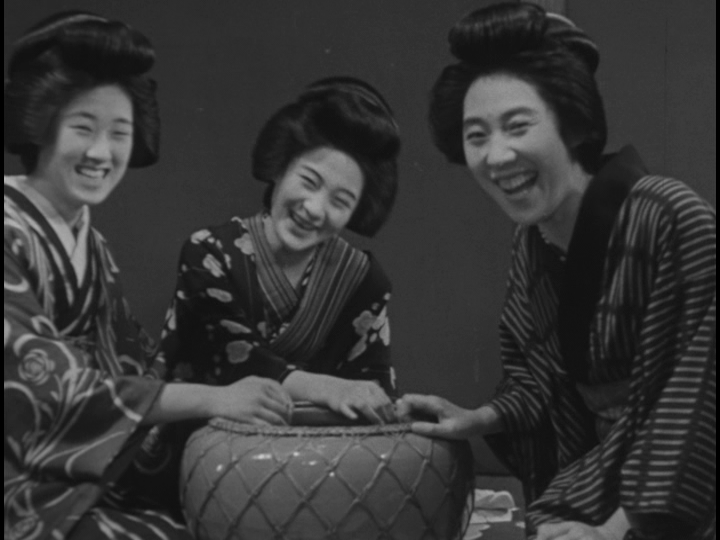
Apart From You is set in its present day, 1933, a time of global financial depression, and takes place in an unnamed Japanese city – probably Tokyo, maybe Osaka or some other metropolis, it doesn’t seem to matter. In a time of economic difficulty, gangs of aimless, aggressive young men roam the streets, looking for trouble and quick, easy shakedowns. Meanwhile, life inside the local geisha parlors goes on pretty much as usual, though the slow business climate means that some of the regular customers are cutting back on the frequency of their visits. Still, the geisha women are trained to keep on smiling and do what they must to flatter their clients and stroke the male ego in order to keep them coming back for more.
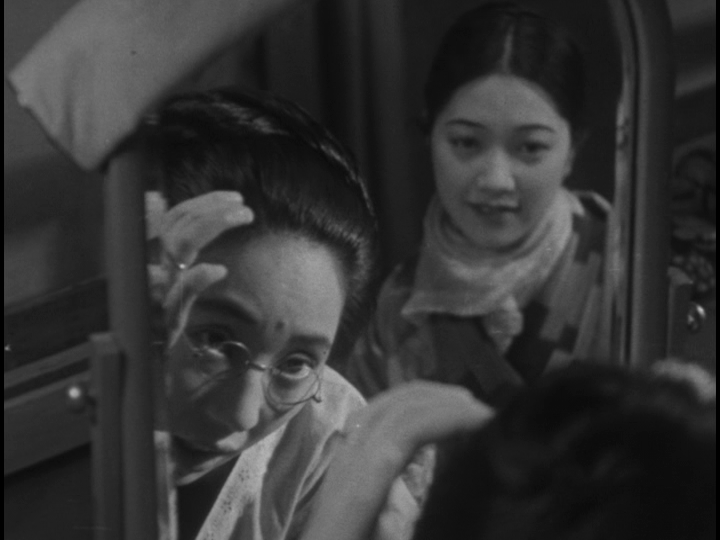
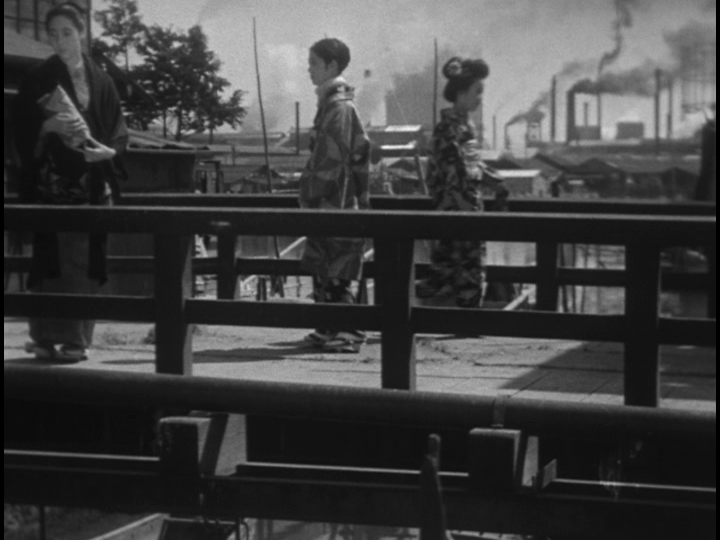
Kikue and Terugiku are two of those women. They come from different generations but have formed a close bond of mutual support with each other. Kikue, the elder of the pair, recognizes her accumulating gray hairs as a troublesome sign that her advancing age will only make her hard lot in life that much more difficult, as she’ll struggle to hold the attention of her patrons when they get an eyeful of beautiful younger geisha like Terugiku. For her part, Terugiku is not one to exploit the advantages of her vibrant attractiveness; she prioritizes character and loyalty above all, and refrains from taking any action that would even inadvertently harm the woman she looks to as a mentor, and perhaps a forerunner of the fate that awaits her later in life.
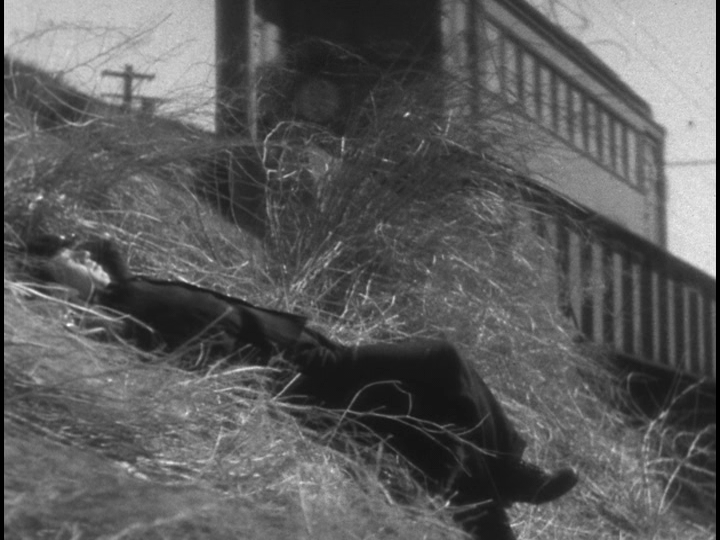
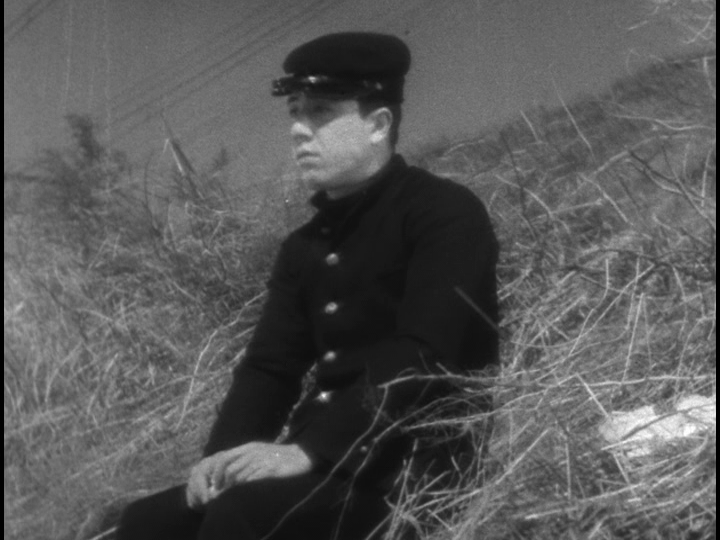
Kikue’s struggles are not limited to simply holding her own against younger, fresher competition. She also has a son, Yoshio, just on the brink of manhood, who’s been caught skipping school and is in danger of running off with the delinquent crowd. His dawning awareness of the rules that society uses to judge people informs him that he’s living under a cloud of disgrace – his mother works in a low-class geisha house, he has no father to set him up in life, school is boring and he’s not sure where he fits in. He resents the situation that his mother’s low station has put him in but has no real idea of how to improve his circumstances. He’s ripe for recruitment in one of the street gangs, and doesn’t feel like he has much to lose in any case.
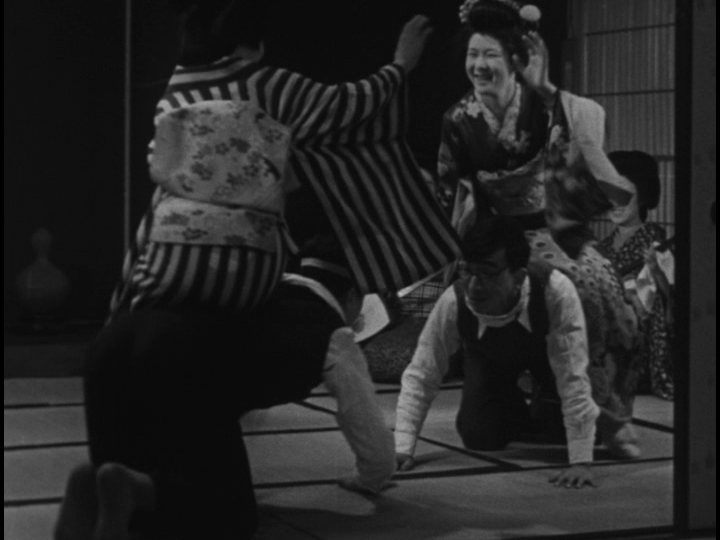
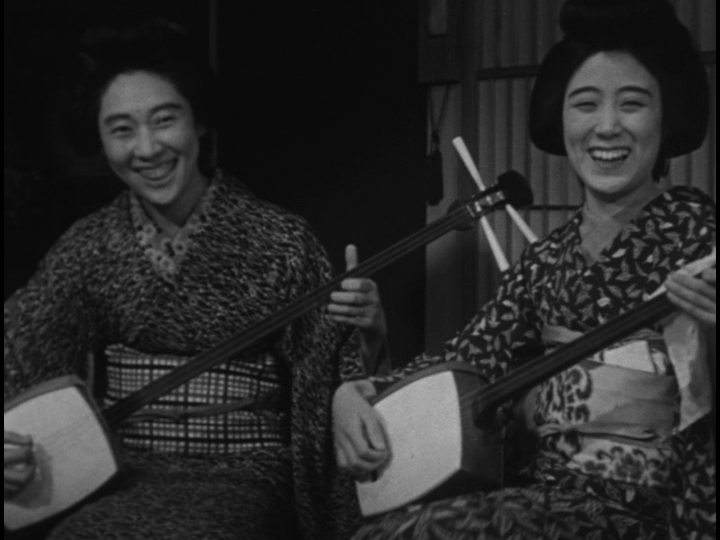
His disgust toward his mother’s choice of occupation is at least partially justified by the debauchery and foolishness that Kikue is forced to condone each night she reports for duty. The stereotype of the drunken Japanese businessman (complete with necktie wrapped around his forehead) comes to fruition as the goofs enact their clumsy rendition of a jousting match. They supply the horsepower, with nimble geisha girls mounted on their backs and Kikue along with her colleague providing the requisite laughter and musical accompaniment on their traditional instruments.
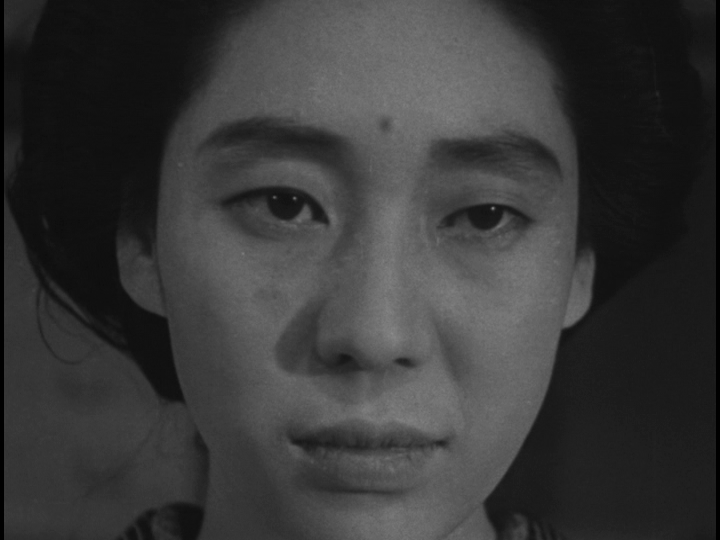
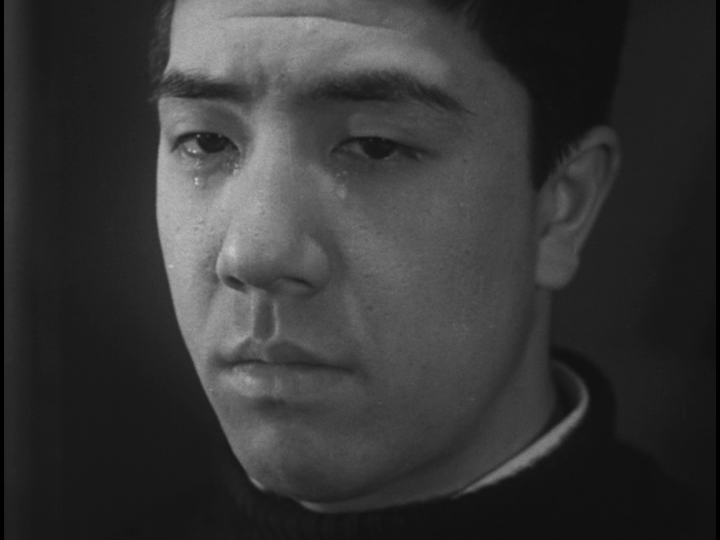
Full of the small touches (embarrassing/comical holes in socks) and reflective moments (countless averted glances and the obligatory reconciliation at the side of a hospital bed) that experienced viewers come to expect from Naruse, here still in their nascent, developing form as he experimented and refined his methods, Apart From You is best appreciated by those who happen to be in the mood for broad, schmaltzy melodrama… the kind of emotional state stirred up by an occasion like Mothers Day, for instance. There are other elements to the story that I won’t cover here in detail – namely, the relationship between Yoshio and Terugiku, whom he’s known as a surrogate big sister but is developing deeper feelings for as he learns more about her – that bring additional illumination into this slice of 1930s Japanese life. For me, this weekend at least, the emphasis was on the pivotal mother-son reconciliation that took place, not overtly, but in Yoshio’s maturing sense of himself as he attains a new level of respect for the sacrifices his mother made for his sake. As is usually the case in a Naruse film, the underlying tensions between characters and their circumstances lead to an eruption of conflict and near-fatal injuries, followed by the victims’ recovery and re-entry to an ambivalent state of perseverance without much prospect of short-term relief. It’s not exactly a happy ending, in fact it’s quite the opposite – not a culminating tragedy that brings resolution, but (even worse, and more realistic), a gut-wrenching acknowledgement that life’s dilemmas often push us further away from those we’ve come to love, despite our wishes to remain close. Apart From You reminds us to fully appreciate those times when we are together, and to be good to those who care about us the most.


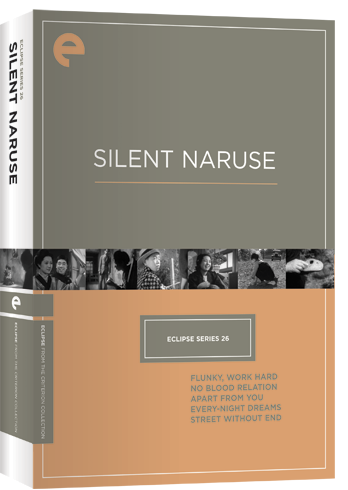


![Bergman Island (The Criterion Collection) [Blu-ray]](https://criterioncast.com/wp-content/uploads/2022/11/bergman-island-the-criterion-collection-blu-ray-400x496.jpg)
![This Is Not a Burial, It’s a Resurrection (The Criterion Collection) [Blu-ray]](https://criterioncast.com/wp-content/uploads/2022/11/this-is-not-a-burial-its-a-resurrection-the-criterion-collection-blu-ray-400x496.jpg)
![Lars von Trier's Europe Trilogy (The Criterion Collection) [The Element of Crime/Epidemic/Europa] [Blu-ray]](https://criterioncast.com/wp-content/uploads/2022/11/lars-von-triers-europe-trilogy-the-criterion-collection-the-element-of-400x496.jpg)
![Imitation of Life (The Criterion Collection) [Blu-ray]](https://criterioncast.com/wp-content/uploads/2022/11/imitation-of-life-the-criterion-collection-blu-ray-400x496.jpg)
![The Adventures of Baron Munchausen (The Criterion Collection) [4K UHD]](https://criterioncast.com/wp-content/uploads/2022/11/the-adventures-of-baron-munchausen-the-criterion-collection-4k-uhd-400x496.jpg)
![Cooley High [Criterion Collection] [Blu-ray] [1975]](https://criterioncast.com/wp-content/uploads/2022/11/cooley-high-criterion-collection-blu-ray-1975-400x496.jpg)